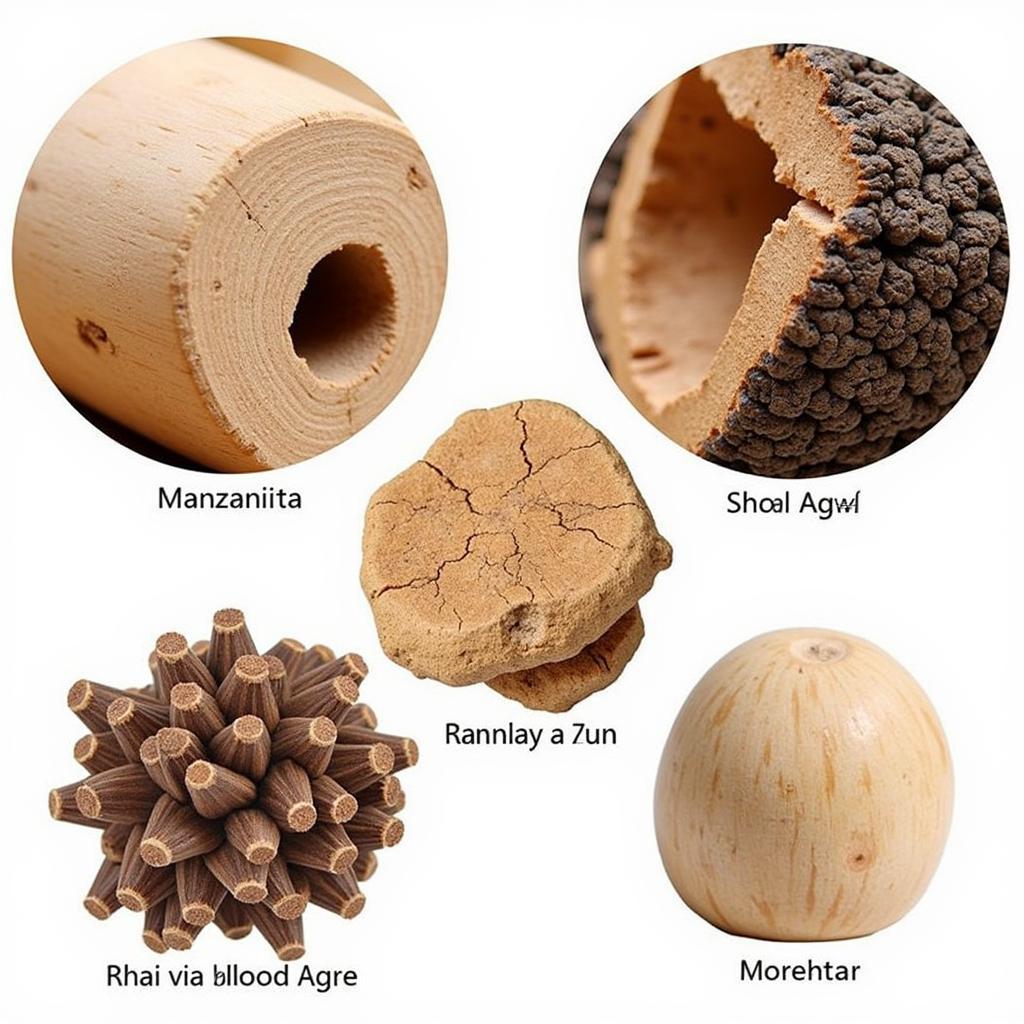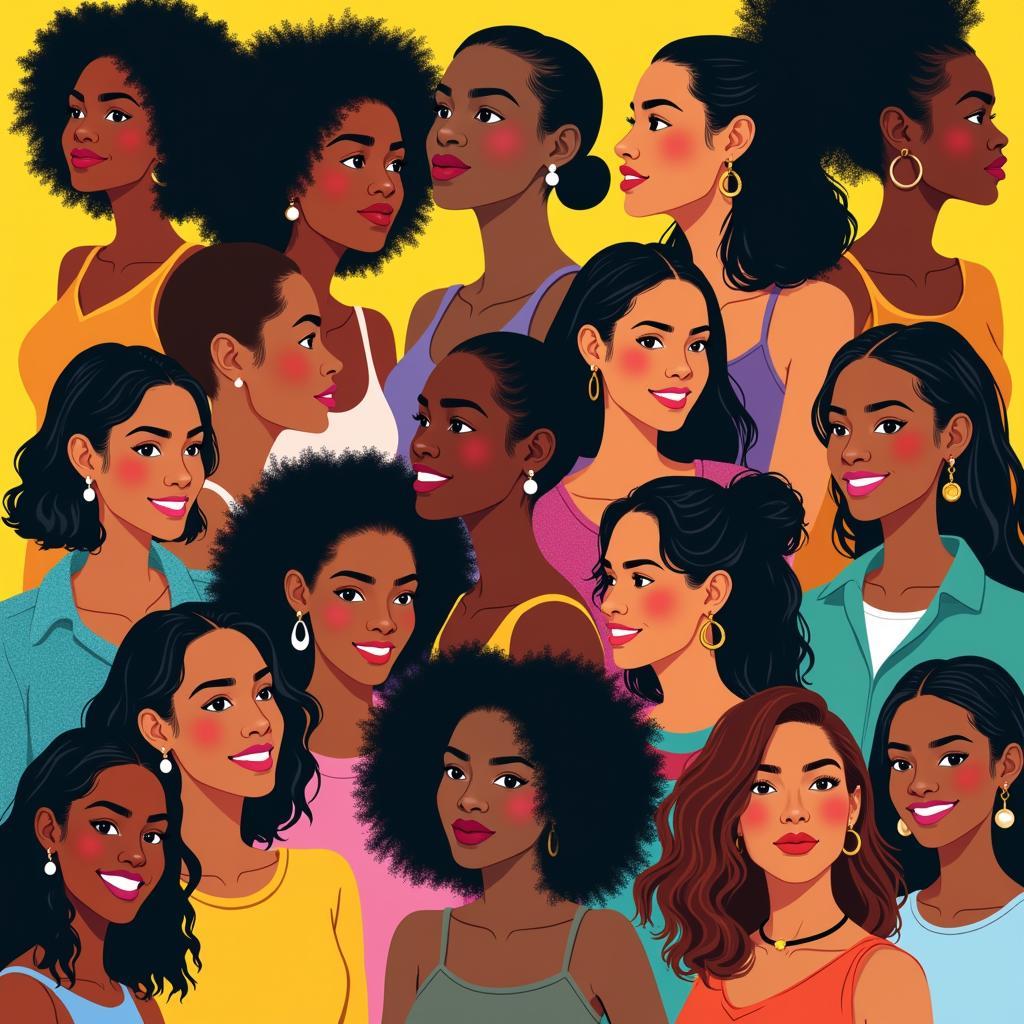African American in Spanish: Understanding the Terminology and Cultural Nuances
The term “African American In Spanish” reflects a complex intersection of language, culture, and identity. It’s important to understand not only the direct translation but also the cultural context surrounding how people of African descent are identified in Spanish-speaking countries. This article dives into the nuances of describing African Americans in Spanish, exploring the terminology used and the cultural sensitivities involved.
What is the Direct Translation of “African American” in Spanish?
While a literal translation of “African American” might be “afroamericano,” this term isn’t universally used or understood in the Spanish-speaking world. The preferred terminology often depends on the specific country and its historical context. In some regions, “afroamericano” might be understood, but it doesn’t carry the same cultural weight as it does in the United States.
“Afrodescendiente” (of African descent) is a more widely recognized and accepted term in many Spanish-speaking countries. This term acknowledges African ancestry without being tied to a specific nationality. It also avoids potentially problematic generalizations. For instance, a person of African descent from the Dominican Republic might prefer to be identified by their nationality rather than being labeled as “African American.”
Navigating Cultural Sensitivities When Referring to African Americans in Spanish
Referring to someone based on their race or ethnicity always requires sensitivity and respect. When speaking Spanish, understanding the local terminology and cultural context is crucial. Using broad terms like “negro” (black) or “moreno” (brown) can be considered offensive, depending on the context and tone.
What are the common terms used in different Spanish-speaking countries? Here are some examples:
- Spain: “Afroespañol” (Afro-Spanish) is becoming more common.
- Latin America: “Afro-Latinoamericano” (Afro-Latin American), “afrolatino” (Afro-Latino), and “afrodescendiente” (of African descent) are widely used.
These terms reflect the unique historical and cultural experiences of people of African descent in various Spanish-speaking regions. It’s also crucial to remember that individual preferences can vary. When in doubt, it’s always best to ask the person how they prefer to be identified.
How to Respectfully Ask Someone of African Descent How They Identify in Spanish?
If you’re unsure how to refer to someone of African descent in Spanish, the most respectful approach is to simply ask. You could say:
- “¿Cómo prefieres que te llame?” (How do you prefer to be called?)
- “¿Cuál es el término que prefieres usar?” (What is the term you prefer to use?)
african american vs afro latino further clarifies the distinctions between these two identities.
This shows that you’re mindful of their individuality and respect their right to self-identification.
How Does History Influence Terminology?
The history of slavery and colonization has profoundly impacted how race and ethnicity are understood in Spanish-speaking countries. Terms that were once common might now be considered outdated or offensive. For example, terms like “mulato” or “zambo,” once used to categorize people of mixed African and European or Indigenous ancestry, are now largely viewed as inappropriate. Understanding this historical context is key to navigating the complex landscape of racial and ethnic terminology in Spanish.
african american restaurants provides a valuable resource for exploring the rich culinary heritage of African American communities.
The Importance of Cultural Awareness
Using the correct terminology is just one aspect of respecting the diverse cultures and identities within the African diaspora. True cultural awareness goes beyond language. It involves learning about the history, traditions, and experiences of different communities. It also means recognizing the impact of systemic racism and discrimination on people of African descent throughout the world.
african american baby girl names that start with m offers a collection of names reflecting the beauty and diversity within the African American community.
In conclusion, understanding the nuances of “african american in spanish” requires more than just a direct translation. It involves appreciating the cultural context, historical influences, and individual preferences that shape how people of African descent identify themselves. By being mindful of these factors, we can foster more respectful and inclusive communication.
FAQ:
- What is the most common way to refer to someone of African descent in Spanish? * “Afrodescendiente” is a widely accepted term.
- Is “afroamericano” understood in Spanish? * It might be understood, but it isn’t universally used.
- Why is it important to be sensitive when discussing race and ethnicity? * It shows respect for individual identities and cultural differences.
- How can I learn more about the African diaspora in Spanish-speaking countries? * Researching the history, culture, and experiences of different communities is essential.
- What should I do if I’m unsure how to refer to someone? * Politely ask them their preferred term.
- Are terms like “mulato” and “zambo” still appropriate? * No, these terms are outdated and often considered offensive.
- How does history influence racial terminology in Spanish? * The legacy of slavery and colonization has shaped how race and ethnicity are understood.
african american lladro figurines showcases artistic representations of African American culture. african panis touches on a different subject but also highlights the diversity of the African continent.
Expert Insight:
Dr. Maria Rodriguez, a renowned sociolinguist, emphasizes, “Language is not static. It evolves with culture and history. Understanding this is crucial when discussing sensitive topics like race and ethnicity.”
Professor Carlos Mendoza, a historian specializing in the African diaspora, notes, “The terminology used to describe people of African descent reflects the complex power dynamics and social structures of different societies.”
Ana Garcia, a community activist, adds, “Respectful communication begins with listening and learning. Asking someone how they prefer to be identified is a simple yet powerful way to show respect.”
For further assistance, please contact us at Phone Number: +255768904061, Email: kaka.mag@gmail.com or visit our address: Mbarali DC Mawindi, Kangaga, Tanzania. We have a 24/7 customer support team.





